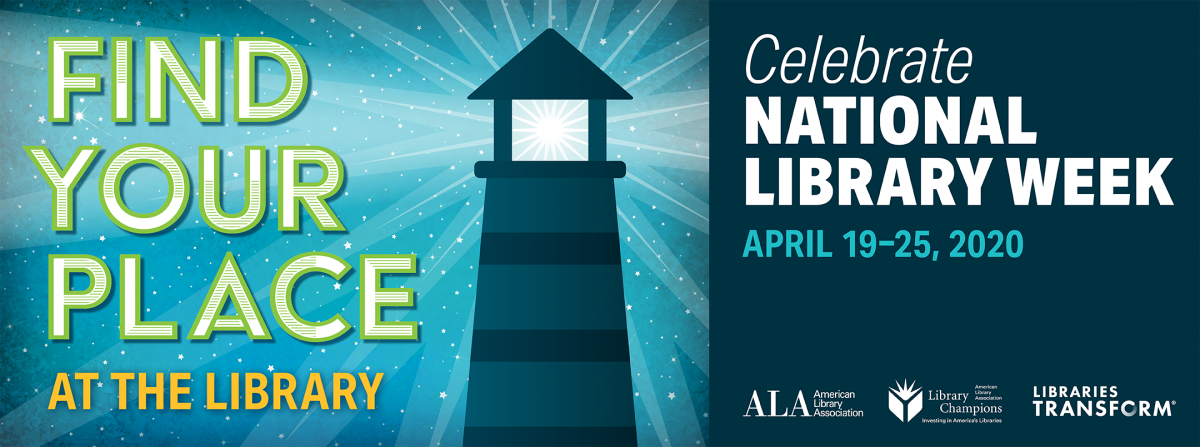
Libraries are all about matching information and resources with the people who need it, when they need it most, so books typically fit into the equation. But I’m also guessing that when you think of a library, your mind conjures up a mental image of a specific place. Maybe it was a school library, or the public library you grew up visiting, or maybe something grander with stained glass windows and mahogany desks. Regardless of the image, our idea of libraries is firmly rooted in the physical location. Libraries pride themselves on being gathering places for people across diverse backgrounds that wouldn’t otherwise cross paths if not for this unique space, and their success is often measured in how many people come through the doors.
When it was announced that this year’s theme for National Library Week was “Find Your Place at The Library,” it made perfect sense; Libraries are the sort of place where everyone can find a place at, and isn’t that a wonderful thing? But by March of this year, libraries across America and around the world shut their doors in an effort to stop the spread of COVID-19, and the library ceased to be a place. Or, if it was still a place, its less recognizable without its usual bustle and was added to the growing list of places out of our reach.
So what does a pandemic mean for the identity of libraries? When doors close and crowds disperse, does the library cease to exist?
It’s all going to depend on whether or not we are willing to transform our definition of a library, from a dormant location to a lively community of library supporters. Starting with this year’s theme. We’ll keep “Find Your Place at The Library” and add “Find the Library at Your Place,” because libraries exist anywhere readers continue to support them.
As an institution, libraries are adapting, as they always have, to meet the ever shifting needs of their patrons. In unusual circumstances like these the needs of the community don’t just disappear, if anything they multiply, and as long as people require access to information, assistance, entertainment, and support libraries will continue to find new and creative ways to serve.
But in order to ensure that libraries are able to rise to these new challenges, they need more community backing than ever. Financially, of course – to keep the lights on and ensure that the doors open again in the near future – but also in terms of engagement. Libraries want to hear from you. Tell them how they can help and what they’re doing right. Tell them about an impact they’ve had and why you need or enjoy libraries in your life. Better yet, tell all of these things to elected officials with the ability to influence of the fate and funding of libraries. Ensure that libraries have the chance to transform by showing your support during National Library Week.
For an easy way to join the celebration this week, highlight libraries on your social media. Use the hashtags #ThankYouLibraries, #NationalLibraryWeek, and #LibraryStrong and be sure to tag us in your post! Share your support for libraries this week, so they can support our bookish communities all year long.